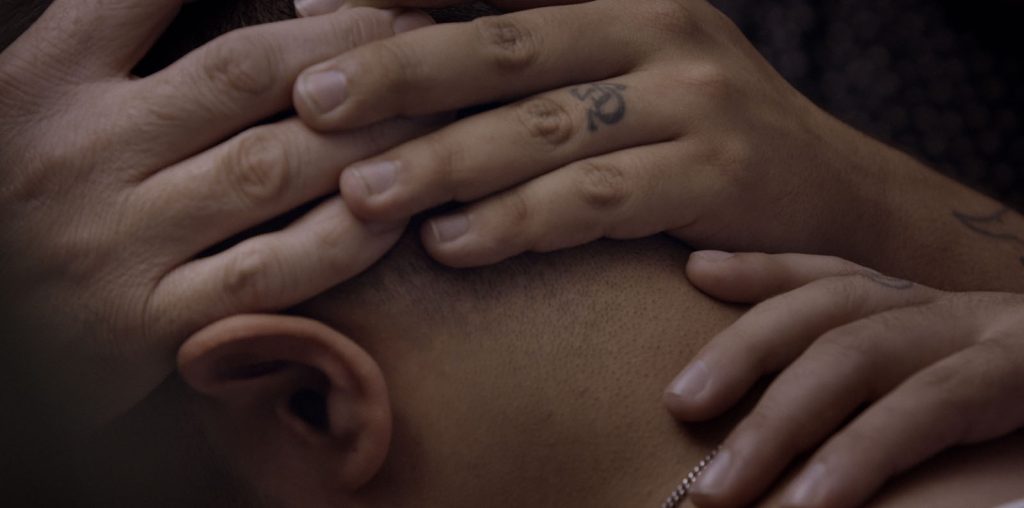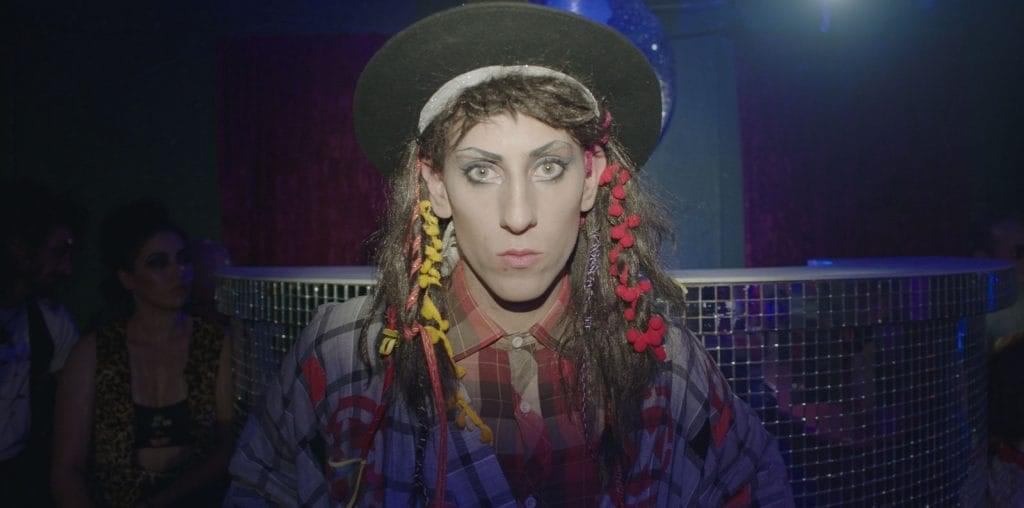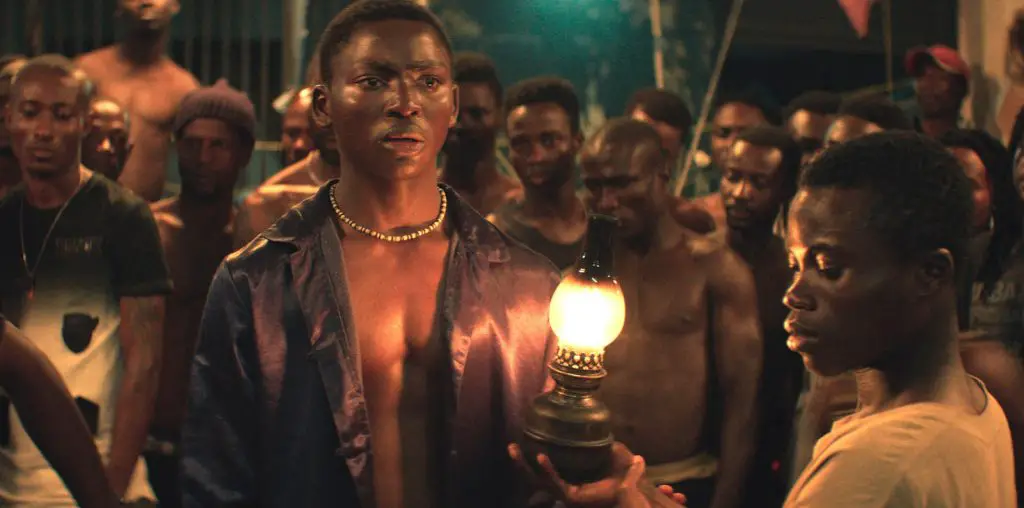
Ostensibly a war film, director Oliver Hermanus’s Moffie reveals itself to be an examination of sexual identity, bigotry, and coming-of-age. As lyrical as it is unflinching in portraying brutality, its stunning cinematography showcasing both the griminess and breathtaking beauty of South Africa, Moffie may not be easy to categorize, but it packs a hell of a punch.
Nicholas (Kai Luke Brummer), barely 16, finds himself among the thousands of young South African men drafted by the Apartheid regime to fight the spread of communism by the Soviet Angola border. As soon as he boards the train, Nicholas is thrust into chaos, with racist young degenerates his age, fighting and vomiting all over the place. The slur “faggot” is among the many spat at each other vehemently by the confused, angry youth. Meeting the gentle Michael (Matthew Vey) provides a brief spark in hell.
The boys are treated like cattle. They’re undressed, cursed at, weighed, and herded into barracks. Their sergeant (Hilton Pelser) is a ruthless masochist, seemingly taking pleasure in putting his troop through the most horrendous torture. During long treks, he makes them watch as he spills precious water. One night, after digging trenches in a torrential downpour, Nicholas finds himself passionately entangled with another young man.
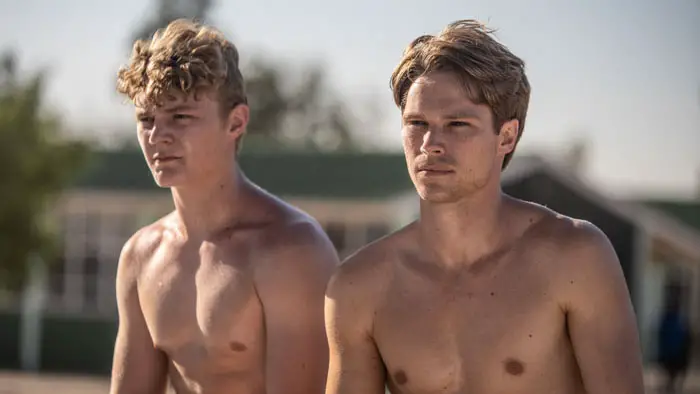
“…after digging trenches…Nicholas finds himself passionately entangled with another young man.”
The details of what happens next, I will let you discover. The director makes bold moves, like flash-forwarding eight months at one point or ending Moffie on an utterly unexpected note, as optimistic as it is soul-crushing. The filmmaker suggests, rather devastatingly, that accessing your true self in an oppressive society may only be possible when your humanity has been stripped raw. If the structure, and, to some extent, plot, bring to mind a certain Stanley Kubrick movie, I applaud Hermanus’s clear reverence for, and ability to emulate aspects of, the much-adored classic, as well as his twisting/subverting of its themes.
Most of the production is filmed through a sun-kissed, golden prism, accentuating the pathos of the beautiful sequences and the depravity of the ugliness on display. Certain scenes will sear themselves into your mind: a Black man being forced to get up from a bench by a pack of ravenous teens; a young man blowing his brains out with a rifle; a spin-the-bottle Fight Club moment; a fight being witnessed through the heavily distorted glass of a window.
Kai Luke Brummer is a revelation in the central role, his introverted performance buoying the plot with nuance and charisma. We navigate through the horrors right alongside him, and we root for him, and in the end, despite a striking and sad realization, we gaze at the ocean and wonder if there’s hope to humanity yet.
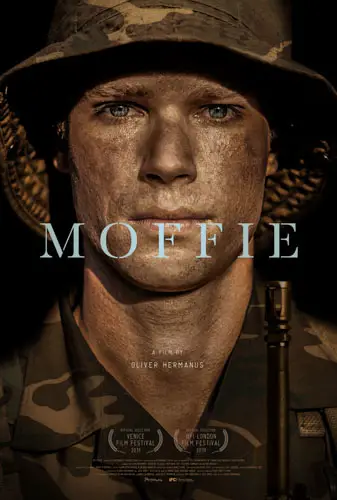
"…Brummer is a revelation..."
